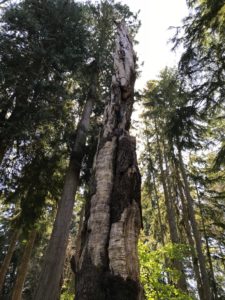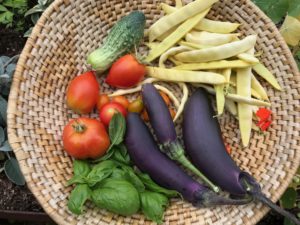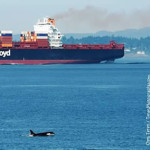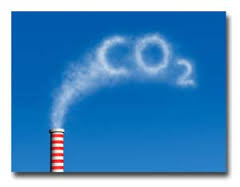
Seminars
October 1, 2019 - Wildfire Smoke, Our Forests, and Your Health
Wildfire Smoke, Our Forests, and Your Health
CONFRONTING WASHINGTON STATE’S WILDFIRE CRISIS
Hilary Franz, Commissioner of Public Lands (Confirmed)
Elected in 2016, Commissioner of Public Lands Hilary Franz protects and manages nearly six million acres of public lands in Washington State – from coastal waters and aquatic reserves, to working forests and farms, to commercial developments and recreation areas. Commissioner Franz is committed to ensuring our public lands are healthy and productive, both today and for future generations. She is leading the push to make Washington’s lands resilient in the face of climate change, investing in carbon sequestration and clean energy with wind, solar, and geothermal infrastructure. As the leader of our state’s largest wildfire fighting force, she has pushed for new strategies, innovations, and resources to protect our communities. In order to restore wildfire resilience in our forests, Commissioner Franz developed a 20-year Forest Health Strategic Plan. This plan will make more than one million acres of forest healthier and more resistant to wildfires – a scale and pace that is unprecedented. And she has prioritized investments in our rural communities, allocating millions of dollars to spark economic opportunities in struggling communities. She knows that our working lands – and the communities that depend on them for family-wage jobs – are integral to our success as a state, and she is investing in their success.Hilary is a third-generation farmer and small forest landowner, and has raised three wonderful boys. She holds a bachelor’s degree from Smith College and a juris doctor from Northeastern University Law School.
AIR QUALITY ISSUES AND CLIMATE CHANGE IN WASHINGTON STATE
Dan Jaffe, PhD (Confirmed)
Dr. Jaffe is a Professor of Atmospheric Chemistry at the University of Washington in the Department of Atmospheric Sciences (UWS) and in the School of STEM at the UW Bothell Campus (UWB). He is also the Chair of the Physical Sciences Division in the School of STEM at UW Bothell. He is an expert on atmospheric chemistry, mercury, ozone, urban and regional smog and long range transport of pollutants and the author of more than 150 peer-reviewed publications on these topics. Dr. Jaffe is widely recognized as an expert on global transport of pollutants, especially transport from Asia to the U.S. and has several papers on the influence of background sources on regional and urban air quality. Dr. Jaffe’s work has received much recognition including being named to the National Academy ofSciences’ panel on “Global Sources of Air Pollutants” and receiving the University of Washington Bothell’s first Distinguished Research Award. He started and is the Principal Investigator for the Mt.
Bachelor Observatory in Central Oregon, which is the only high elevation research station on the west coast of the U.S. His research has been supported by the NSF, NOAA, EPA, NASA, NPS, EPRI, API and other organizations.
AIR QUALITY AND HEALTH: LOOKING FORWARD (tentative)
Michael Brauer, ScD
Dr. Michael Brauer is a Professor in the School of Population and Public Health at The University of British Columbia (UBC) and an Affiliate Professor at the Institute for Health Metrics and Evaluation at the University of Washington. His research focuses on transportation-related and biomass air pollution, the global health impacts of air pollution and the relationships between multiple exposures mediated by urban form and population health. He has participated in monitoring and epidemiological studies throughout the world and served on numerous international, national and local advisory committees advisory committees. His contributions to environmental health have been acknowledged by a number of career achievement and publication awards.
Moderator: Robert McClure, InvestigateWest
October 10, 2018 - Climate Change, Human Health, and Nutrition
Climate Change, Human Health, and Nutrition
Presenters:
Kristie Ebi, MS, MPH, Ph.D. CLIMATE CHANGE AND THE FOOD YOU EAT
Stephen Jones, Ph.D. CITY WHEAT COUNTRY BREAD
Mark Vossler, MD HUMAN HEALTH IMPACT
BIOS
Kristie L. Ebi is director of the Center for Health and the Global Environment (CHanGE), and Rohm and Haas Endowed Professor in Public Health Sciences at the University of Washington. She has been conducting research and practice on the health risks of climate variability and change for over twenty years, focusing on understanding sources of vulnerability, estimating current and future health risks of climate change, and designing adaptation policies and measures to reduce the risks of climate change in multi-stressor environments. She has supported multiple countries in Central America, Europe, Africa, Asia, and the Pacific in assessing their vulnerabilities and implementing adaptation policies and programs. She has been an author on multiple national and international climate change assessments, including the IPCC Special Report on Global Warming of 1.5°C https://ipcc.ch/report/sr15/. She co-chairs the International Committee On New Integrated Climate change assessment Scenarios (ICONICS) that created five scenarios of socioeconomic development over this century. Dr. Ebi’s scientific training includes an M.S. in toxicology and a Ph.D. and a Masters of Public Health in epidemiology, and two years of postgraduate research at the London School of Hygiene and Tropical Medicine. She has edited fours books on aspects of climate change and has more than 200 publications.
Stephen Jones is a wheat breeder and the Director of The WSU Bread Lab in Skagit Valley. Stephen has a Ph.D. in Genetics from the University of California at Davis and teaches graduate courses in advanced classical genetics and in the history and ethics of genetics. His first wheat crop was on five acres at Chico State University’s student farm in 1977. Together with his graduate students, he breeds non-commodity wheat and other grains for local uses to be grown on small farms in the coastal West, the upper Northeast and other regions of the country. The Bread Lab is a combination think tank and baking laboratory where scientists, bakers, chefs, farmers, maltsters, brewers, distillers, and millers experiment with improved flavor, nutrition, and functionality of regional and obscure wheat, barley, other small grains and beans.
Mark Vossler is a practicing physician and section chairman of Cardiology at Evergreen Hospital in Kirkland. After medical school at University of Rochester and Residency at the University of Vermont, he did his fellowship in cardiology at Oregon Health Sciences University. His clinical practice focuses on congestive heart failure and cardiomyopathy. He and his wife Susan have been longtime activists on issues involving environment and health. He is the co-chair of the Climate and Health Taskforce of Washington Physicians for Social Responsibility, WA congressional district 1 liaison for Citizens Climate Lobby and an East King County regional hub for the Yes on 1631 campaign. He has co-authored WPSR’s position statements on the health impacts of oil transport by rail and on the health co-benefits of climate change mitigation. Mark and Susan have three teenage children, Lydia, Eli and Claire and enjoy hiking, Nordic skiing, and fishing in their very precious spare time.
May 23, 2017 - Microbial Allies Beneath Our Feet & In Our Bodies
Microbial Allies Beneath Our Feet & In Our Bodies
You are what you eat? We’ve all heard how much diet affects physical and mental health. Now, new science is helping us understand some of the fundamental mechanisms at play, not only in our bodies, but also in food crops. The soil and gut microbiomes, nutrition, and farming practices are among the topics a geologist, a nutritionist, and a biologist will cover during a presentation and panel discussion.
Presenters:
David Montgomery, PhD and Anne Bikle, MLA; authors of The Hidden Half of Nature
Michelle Babb, MS, RD; author of Anti-Inflammatory Eating For A Happy, Healthy Brain
Location: Seattle Town Hall
BIOS
Anne Biklé attended the University of California, Santa Cruz earning Bachelors degrees in Biology and Natural History. She holds a Masters Degree in Landscape Architecture from the University of California, Berkeley. She has over two decades of professional experience in field biology, environmental planning and public health. She co-authored The Hidden Half of Nature: The Microbial Roots of Life and Health with David Montgomery.
David Montgomery is a professor of geomorphology at the University of Washington. He received a Bachelors degree in Geology from Stanford University and a PhD from the University of California, Berkeley in Geomorphology. In 2008 he received a MacArthur Fellowship (known popularly as the genius award).He has just completed a fifth popular-science book, Growing a Revolution: Bringing Our Soil Back to Life. He has been featured in documentary films, network and cable news and other media.
Michelle Babbs has a private practice in West Seattle where she specializes in mind-body nutrition, weight management and inflammatory digestive disorders. Michelle is a Bastyr-trained functional medicine practitioner. She was an adjunct professor at Bastyr. Michelle is the author of The Imperfect Perfectionist, Anti-Inflammatory Eating Made Easy, and Anti-Inflammatory Eating for a Happy, Healthy Brain. She teaches nutrition-focused cooking classes at PCC.
February 1st, 2017 - A SILVER LINING: HEALTH CO- BENEFITS OF CLIMATE CHANGE POLICIES
A SILVER LINING: HEALTH CO- BENEFITS OF CLIMATE CHANGE POLICIES
The policies that need to be implemented to reduce greenhouse gas emissions will also bring about substantial reductions in air pollution and cardiovascular disease, as well as propelling changes in urban mobility and our built environment. Looking at health co-benefits creates a different paradigm one that is win-win for most people, and for the planet. The panel will discuss the health co-benefits of climate change policies.
SLIDESHOW AVAILABLE 2-1 Presentations Hess Strange Dannenberg.
Video will be posted when available.
PANELISTS:
- Jeremy Hess, MD, MPH; Univ. of WA Associate Prof, Env & Occ Health Sciences & Associate Prof, Global Health
- Kathy Strange, P.E., M.S.; Manager, Technical Analysis with Puget Sound Clean Air Agency
- Andy Dannenberg, Affiliate Professor; Univ of WA Dept. of Environmental and Occupational Health Sciences, School of Public Health & Dept. of Urban Design and Planning, College of Built Environments
2016 - TOPIC: Oil Tanker Traffic In The Salish Sea: Threats Of Spills and Noise Pollution
Oil Tanker Traffic In The Salish Sea: Threats Of Spills and Noise Pollution
Ensuring safe shipping through Washington’s waterways is critical to maintaining our region’s economy, culture and environment. With multiple projects proposed that will expand coal and oil exports from ports in British Columbia and Washington, oil spill risks are escalating rapidly. Evidence shows that ocean noise caused by people is doubling every decade, and the effects of this increased noise on sea creatures are not well understood.
PANELISTS
- Stephanie Buffum, Friends of the San Juans, Executive Director
- Fred Felleman, Friends of the Earth; Commissioner, Port of Seattle
- Rob Williams, Oceans Initiative marine conservation scientist; a 2015 Marine PEW Fellow
2015 - TOPIC: Extraordinary Tales From the Salish Sea
Extraordinary Tales From the Salish Sea
Presenters:
Joe Gaydos, Chief Scientist for the SeaDoc Society
Audrey DeLalla Benedict, Director of Cloud Ridge Naturalists
TOPIC: Putting a Price on Climate Pollution in Washington State
SPEAKERS:
- Yoram Bauman – environmental economist, Founder of CarbonWA
- KC Golden – Senior Policy Advisor at Climate Solutions and Board Chair of 350.org
- Nicole Vallestero Keenan – Policy Director, Puget Sound SAGE
- Todd Myers – Director, Center for the Environment, WA. Policy Center
- Moderator: Steve Scher
Our state has taken a regional leadership position on climate change. The panel of experts and leaders on climate change will explore the future of climate policy in our state and the challenges ahead.
